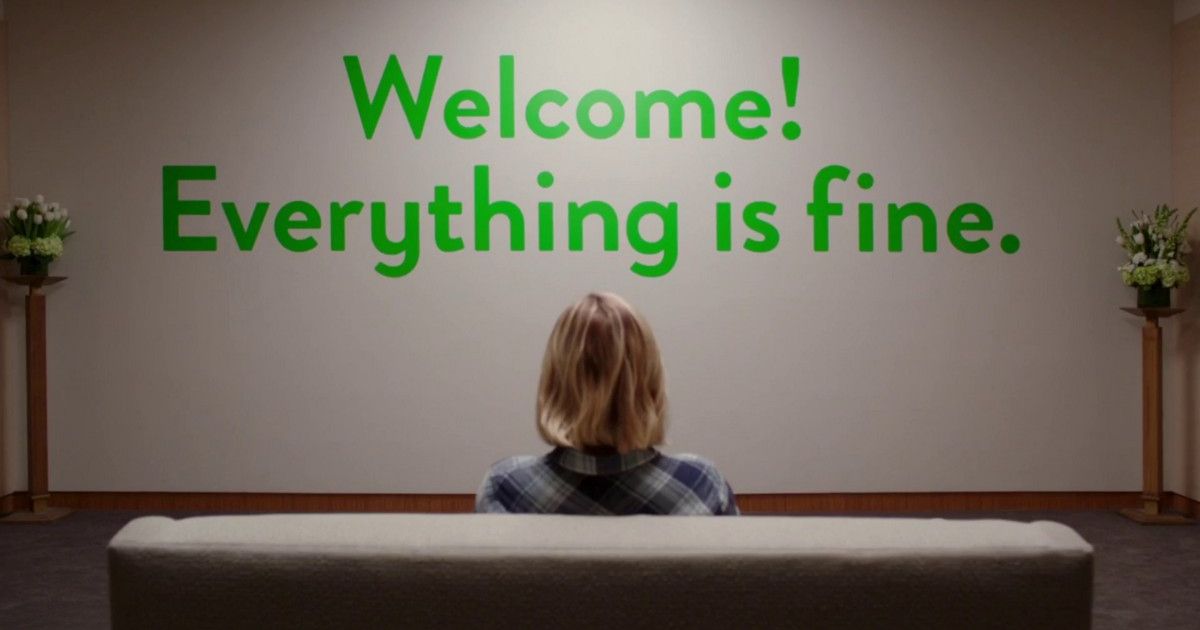It has been over two years since NBC's fantasy comedy The Good Place showcased its final episode. However, the series became such a huge hit, that even today, viewers seem to revisit and enjoy it. The question is, how did such a series become so popular? The Good Place is definitely not your everyday comedy series. It has incorporated a lot of philosophical theories and ideologies. Buddhism is one such philosophy that the series invokes.
Using a TV series to focus on philosophies while ensuring the comical nature is perfectly captured is no easy task. Generally, when a movie or a series focuses on a philosophical theory like nihilism, it tends to be dark. Yet again, Michael Schur, who is also a co-creator of Parks and Recreation, managed to bring in a bright show that makes sure the viewer is given a great amount of knowledge on these philosophies that are decades old. Thus, the shows subtle nods toward Buddhism make one think more about one's life and the choices one makes. Here is how the show has borrowed many Buddhist principles, while incorporating its own outlook to it.
A Parody Of The Karmic Law
The Good Place starts off with the protagonist, Eleanor Shellstrop (Kristen Bell), waiting for the literal doors to the afterlife to open. Shockingly, this selfish, dishonest, and immoral "dirtbag" is welcomed to the Good Place simply because she was mistaken for a lawyer. The "Good Place architect", Michael (Ted Danson), explains to Eleanor, and inadvertently the viewer, about the point system that keeps score of one's good and bad deeds. This point system plays a huge role throughout the series and as the storyline develops, it is revealed that no one has entered the real Good Place simply because it is impossible to get points. Interestingly, Schur uses this as an opportunity to not just reflect on the karmic law under Buddhist philosophy, but also to parody it.
"Karma is the idea that what you do comes back to you. The energy you put out is the energy you receive back,” says Alyse Bacine
The Good Place combines this with the Buddhist ideologies of the afterlife and displays the complex nature of this karmic law. As Michael explains, the simple act of buying tomatoes can bring you negative points due to the many unethical processes included in the production of those tomatoes, like labor exploitation. As Winfield points out, this utterly useless point system makes the viewer question the karmic law as "in a radically interdependent world, how can anyone gain liberation if we all don’t? It’s all or nothing, which seems like a rather unfair, unrealistic, and unsatisfactory soteriological system, all things considered."
The Finale That Ends With Nirvana
Buddhists believe that human life is a cycle of suffering and rebirth, but that if one achieves a state of enlightenment (nirvana), it is possible to escape this cycle forever.
This simple statement sums up one of the core principles of Buddhist philosophy. Enlightenment, or nirvana, is regarded as the ultimate escape from the suffering caused by life. In fact, one key reason why the Lord Buddha (the teacher of this philosophy) became an ideal example for all is because he was able to achieve enlightenment, as per the Buddhist stories. The Good Place ends the story with the characters striving to achieve nirvana. Of course, in the series there is a literal gate that is waiting to accept those who are ready to enter enlightenment-hood.
Another similarity between this idea of nirvana in Buddhism and its embodiment in The Good Place is that according to Buddhist principles, one must let go of all bonds, desires and do good deeds, while bettering oneself to enter this stage. Thus, it is definitely no easy task. Similarly, we see Chidi (William Jackson Harper) and Eleanor striving hard to correct their flaws and make the lives of others better before entering the gate of nirvana.
The Idea of Samsara
Samsara is yet another principle that is central to Buddhist philosophy. As Wilson states, Samsara is "a suffering-laden cycle of life, death, and rebirth, without beginning or end". This also means that the happiness that we feel are merely brief moments of relief, as it cannot be paralleled to the suffering of life and being born again and again to go through illnesses, challenges and whatnot. This is yet another ideology the series captures. In an interview, Michael Schur points out that "it doesn’t matter how great things are, if they go on forever they will get boring" and that it is one view point he took when coming up with the conclusion of The Good Place. This way of thinking is very much similar to the idea of samsara.
In the series, we see that Chidi and Eleanor end up in the Good Place, and they live in this paradise as they were hoping to. Yet again, this gets boring after a certain point, as life itself is suffering simply because of the monotonous routines one must follow. Thus, when Chidi, and later Eleanor, decides to enter nirvana leaving behind all the luxuries of this paradise, they are inadvertently suggesting that even a life filled with nothing but bliss is suffering. Thereby, it can be argued that the idea of samsara is central to Chidi and Eleanor's decisions to put an end to the cycle of rebirth.




